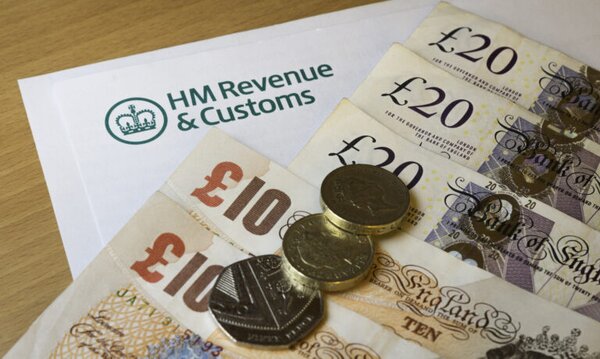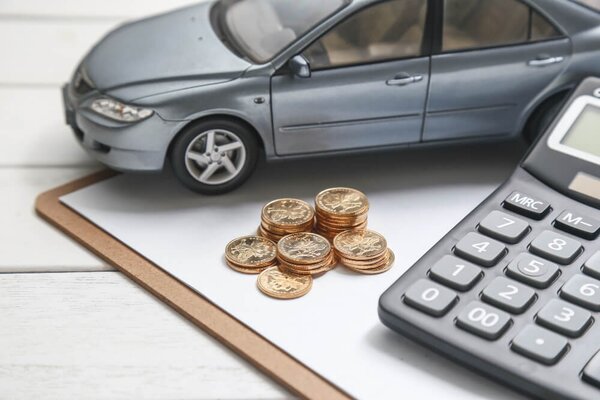Let’s Break This Down Together...
Worried you might be throwing away something HMRC expects you to keep? Knowing what to save (and for how long) can feel like a guessing game.
This guide explains exactly how long to keep records for Self Assessment, what documents you need, and what changes if you run a business.
It’ll help you stay compliant, avoid penalties, and keep things stress-free at tax time. Let’s find out.
What Tax Records Do You Need to Keep?
For Self Assessment, HMRC expects you to hang onto quite a range of documents. These include all your income evidence like invoices, receipts, contracts, and other important records. Note: All details should be accurately recorded to ensure compliance and support any future review by HMRC.
You’ll also need expense receipts, records of purchases, VAT records if you are VAT registered, bank statements, and accounting records. Documentation of any assets you’ve bought or sold is essential too, including records for equipment and machinery with long-term use.
If you are an employer, you must keep PAYE records, including salary and deduction details, for at least three years from the end of the tax year. If you employ staff, it’s important to keep comprehensive records for employees, as employers are responsible for maintaining these documents.
If you use a vehicle for business, keep those mileage logs. Property income? Maintain rental agreements, maintenance receipts and mortgage statements.
To keep your records organized, maintain an account or system for storing important records and ensure easy access, whether digitally or physically. Regularly review your records to make sure everything is up to date and nothing is missing. The benefit of this is that it makes tax time easier, reduces stress, and helps avoid penalties.
How Long Should You Keep Self Assessment Records in the UK?
The standard rule is straightforward: keep your Self Assessment records for at least 5 years after the submission deadline of the relevant tax year. It is essential to keep your records for the full time frame required by HMRC to ensure compliance and avoid penalties.
In practical terms, this means 6 years after the end of the tax year in question. For example, for the 2022/23 tax year, you’d need to keep records until 31 January 2029, which is 6 years after the return has been submitted and filed.
HMRC accepts both physical and digital records. Those smartphone receipt photos are perfectly valid if they’re clear and complete. Keeping your records helps with the process of completing and submitting your tax return, as you will need to refer to them when filling out your Self Assessment form.
When submitting your Self Assessment form, it is important to complete it accurately and confirm that all figures are correct before submission. This helps ensure you are paying the correct amount of taxes and can show how much tax has been paid if HMRC requests evidence.
Remember, the clock starts ticking from the 31st January deadline, not when you actually submitted your return. Keeping your records for the required time frame supports the process of completing, submitting, and filing your tax return, and helps confirm your compliance with HMRC requirements.

Record Keeping for Different Business Structures
No matter how your business is set up, keeping the right tax records is essential for staying compliant and making sure you pay the correct amount of tax. The requirements can vary depending on whether you’re self employed, running a limited company, or part of a partnership, so it’s important to understand what’s expected for your specific business structure.
Self Employed (Sole Traders):If you’re self employed, you need to keep detailed records of all your business income and expenses. This includes invoices, receipts, bank statements, and any other relevant documents that show money coming in and going out of your business.
Good record keeping not only helps you complete your tax return accurately, but also ensures you can claim all allowable expenses and avoid issues if HMRC asks for evidence. Remember, your business records are the foundation for your annual tax return, so keeping them organised is key.
Partnerships If you operate as a partnership, you’ll need to keep records similar to those of a sole trader, but with the added responsibility of tracking each partner’s share of income and expenses. The partnership itself must file a partnership tax return, and each partner will also need to report their share of profits or losses on their individual tax returns. Accurate record keeping ensures that all partners pay the right amount of tax and that the partnership remains compliant with HMRC requirements.
No matter your business structure, investing time in proper record keeping pays off at tax time and helps you manage your business more effectively. Whether you use online accounting software or a traditional filing system, keeping your records up to date and secure is one of the best ways to protect your business and avoid unnecessary stress.
Special Cases: When You Need to Keep Records Longer
Some situations require you to hold onto documents for longer than the standard period. For example, if you submit late returns or very late returns (over 4 years overdue), you may need to keep records for longer than usual for tax purposes. If you’re self-employed with incomplete records when filing, extend that to 6 years after the submission deadline, and ensure you keep records to support your profit calculations for tax purposes. You must also be able to produce these records if HMRC requests them.
Property businesses often need to keep records for up to 20 years. This is due to capital allowance claims and potential future capital gains implications.
If you’ve claimed losses to carry forward to future years, keep the supporting documentation until those losses are fully utilised. This could be many years.
For assets subject to Capital Gains Tax, maintain all purchase, improvement and valuation records. Keep these until 5 years after you report the disposal on your tax return.
What Happens If You Don't Keep Proper Records?
HMRC doesn't take record-keeping lightly. Failing to maintain adequate records can result in penalties ranging from £250 to £3,000 for serious cases.
Without proper documentation, you might struggle to prove your entitlement to expenses (such as tools, materials, professional fees etc) or allowances. This potentially increases your tax bill.
If HMRC conducts an enquiry and you can't provide necessary records, they may make their own assessments. These are often not in your favour.
Poor record-keeping can also trigger more detailed HMRC investigations. This might suggest other compliance issues to the tax authority.Enter some text...

Digital Record Storage Tips
Record-Keeping Best Practices

Final Thoughts
While keeping tax records might seem like a chore, it's much less painful than facing an HMRC investigation without proper documentation.
The standard 5-year rule covers most situations, but be aware of special circumstances requiring longer retention.
Digital storage makes record-keeping easier than ever. Still, maintain good organisation and security practices throughout.
When in doubt about whether to keep a document, the safer option is always to retain it a bit longer. Better safe than sorry with HMRC.
Simplifying Self Assessment Record Keeping
Getting your tax record retention right shouldn't require an accounting degree or endless filing cabinets. Pie keeps your records organised automatically for exactly the right period HMRC requires.
Our secure digital storage means no more shoeboxes of receipts or hunting through email archives. Everything is categorised, searchable and ready when needed.
We maintain a complete history of your submissions alongside supporting documentation. This gives you peace of mind that you can respond to any HMRC queries quickly.
The UK's first personal tax app ensures you're always compliant without the stress of manual record-keeping. No more guesswork about what to keep and for how long.
Curious to see how much easier tax record-keeping could be? Take a look at how Pie. works for you.











